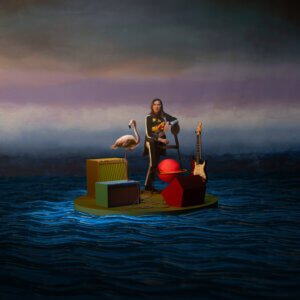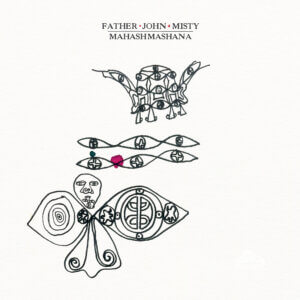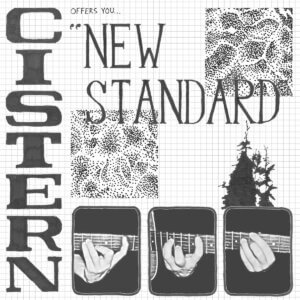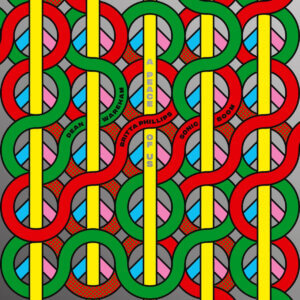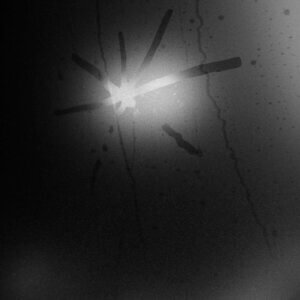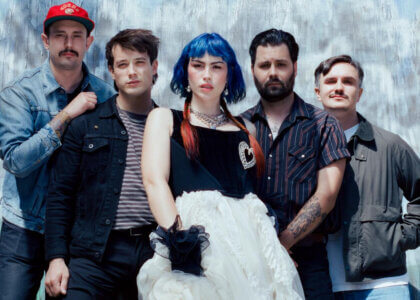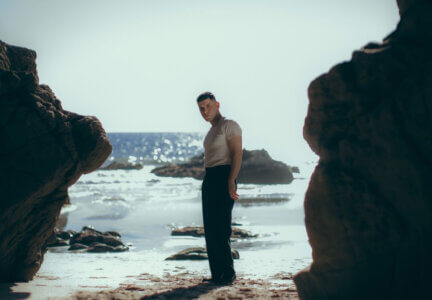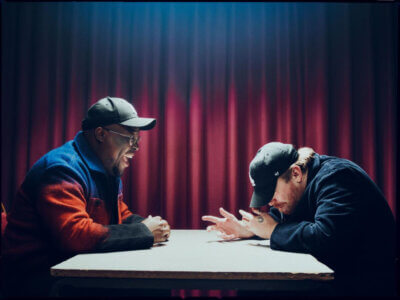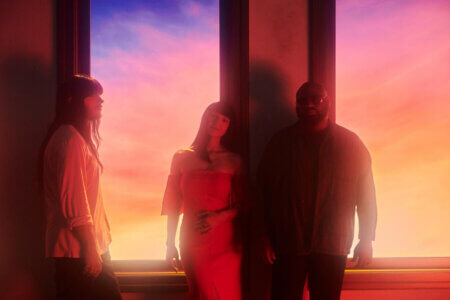Phoebe Bridgers Harnesses Darkness
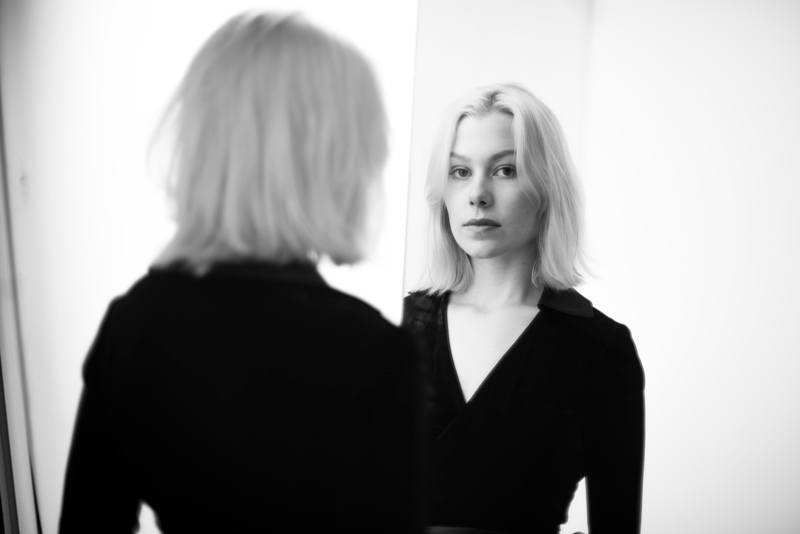
Though her music might make you think of Phoebe Bridgers as a troubled and sad individual, a quick talk with her will have you laughing. The singer-songwriter who’s made quick friends with Ryan Adams and Conor Oberst has made a name for herself thanks to devastating compositions with brutally real and honest lyrics. Despite all this, her sharp humour and relaxed demeanor shows how she’s been able to turn her heavy music into such lavish productions with her collaborators for her album Strange In The Alps. We caught up with Bridgers ahead of her show on February 27 at Le Belmont in Montreal to talk about finding multiple producers and why an obscure Big Lebowski quote became the perfect album title.
Northern Transmissions: You’ve talked about how Stranger in the Alps is a collection of song’s you’ve been writing since you started making music, so do you think you’ll be more in the present with your new material?
Phoebe Bridgers: I was tentative to put out songs like “Chelsea” and “Georgia” because they’re just so different from the way that I write now. But I felt like it was good to put a stamp on it, like this is my whole catalogue. I feel like every time I write a new song, an old song drops off the back of the truck. I’ve had ten songs that I like of my own since I was 16, but every time I write a new song, another one disappears. It felt good to just get it out, so now I have songs for the second record, that I’m excited to make at some point, that resemble “Smoke Signals” more than the ones I wrote at the beginning of the process.
NT: How did the making of Stranger in the Alps compare to the manic rush that led to your Killer EP?
PB: I don’t think it could’ve been more different. We came at every song with a different set of ears. There was a country song, an electro song and we even sampled a guitar loop on it. The Killer EP just felt like demos to me, and I recorded each song twice but used the first take for all of them. It also took weeks to finish one song on Stranger In The Alps too which was way longer.
NT: On that note how was reinterpreting “Killer” for the record?
PB: Inherently with the piano it just felt different anyway. But I met Tony (Berg) the same week I met Ryan Adams. The fact that the demos came out first, I hadn’t even thought about it. I was working on “Killer,” plus I really wanted John Doe to sing on my record because I think his voice is amazingly scary. I asked John to sing on “Georgia” and he said it was the strangest song to have someone sing on, “I’ll sing on ‘Killer.'” The seven inch was already making the rounds so I was thinking about not even putting it on the album but I thought if we put this crazy vocal on it that it could work.
NT: How did Tony Berg and Ethan Gruska get involved with your record and what did they bring as producers?
PB: I was drawn to Tony because he has these very complex arrangements for songs but they’re never overcrowded or too layered. It never feels like giant arena-folk to me which a lot of producers are guilty of, I was going in with a lot of people who were trying to make me sound like that. I was also drawn to Tony because he made the first Blake Mills album Break Mirrors, which is my favourite ever. I started working with him through friends, and when I started mentioning I wanted songs to be piano-led, he showed me Ethan’s record, which he’d just produced. I was blown away, and I was actually so nervous to be around him, I was intimidated. About five songs into the album, Tony was just outside on the phone for virtually a whole day, and we finished a song with just me and Ethan. I was uncomfortable and I was telling the drummer Marshall on the way home “Ethan produced that, how do we bring this up with Tony to give him proper credit.” I get to the studio the next day ready to break the news and Tony asks “What do you think about having Ethan co-produce the rest of the record since obviously he did yesterday?” Tony has extensive knowledge of all kinds of things in recording, he gets me out of my head with arrangements, and he’s got crazy versions of chords I use to show me. Ethan is more “look at this seventies drum machine sample I found, let’s use it instead of drums.” It was really fun because we all had a different set of skills.
NT: You’ve been touted as an artist who writes sad songs, but do you feel this is accurate and is your music is more of a catharsis?
PB: I feel both ways, because I went through some crazy depression right after I graduated high school which has not been repeated in my life. That was really intense, and I was writing a lot of songs then. I realized recently when my friend was showing me bands, I realized I always look for the short and sad ballads. My genre of songs that I like are sad ballads, even if it’s not that person’s genre. I remember reading all these Elliot Smith interviews where he was pissed that he was being pegged as this thing, but for me it makes sense. On the other hand I feel like I get nervous, and sometimes I’ll revert to a 12-year-old surfer bro. I think that a lot of my personality is different than my music but I don’t think it’s disingenuous to represent me as someone who writes sad songs. The idea of “Sad girls” is definitely romanticized by Tumblr and Twitter, but that kind of sucks because why do you want that.
NT: Alternatively, what inspired the cheeky Big Lebowski joke for your album title?
PB: It didn’t feel like a real title for a long time, it just felt pseudo-poetic to me. You might not blink twice if you didn’t know it. It started as a joke title but then I started to like it. Conor Oberst was saying “Please don’t do that, you’re going to be asked that in every interview.” I was worried and made all these lists of different titles that Conor liked. I just went behind his back because I still liked it more, and I do get it all the time but I like it. I said it to a couple people, and they said “Cool, what does it mean?” But I would tell my friend Harrison who plays guitar with me about it he said “THIS IS WHAT HAPPENS LARRY!” Those were both satisfying experiences because it wasn’t too obscure.
NT: How do your songs generally start and how do you evolve songs from your long notepad to what they are on the album?
PB: A lot of the time, a simple idea isn’t really the focal point. I’ll base an idea around something and it turns into something completely different. Often I have a lyric I really want to use, and I have a bunch of floating melodies. There are recordings of me crouching in grocery stores, because I like mishearing music. I’ll realize a song is in a different key than I thought first hearing it and I’ll accidentally come up with something, record it by humming in my phone and see what works together. I’ll trash songs and merge them with something else, I really just need a push. I used to go to writing sessions with this publisher and I would just start from scratch all the time, and it gave me a lot of advice on how to start songs.
Words by Owen Maxwell
Latest Reviews
Tracks
Advertisement
Looking for something new to listen to?
Sign up to our all-new newsletter for top-notch reviews, news, videos and playlists.
